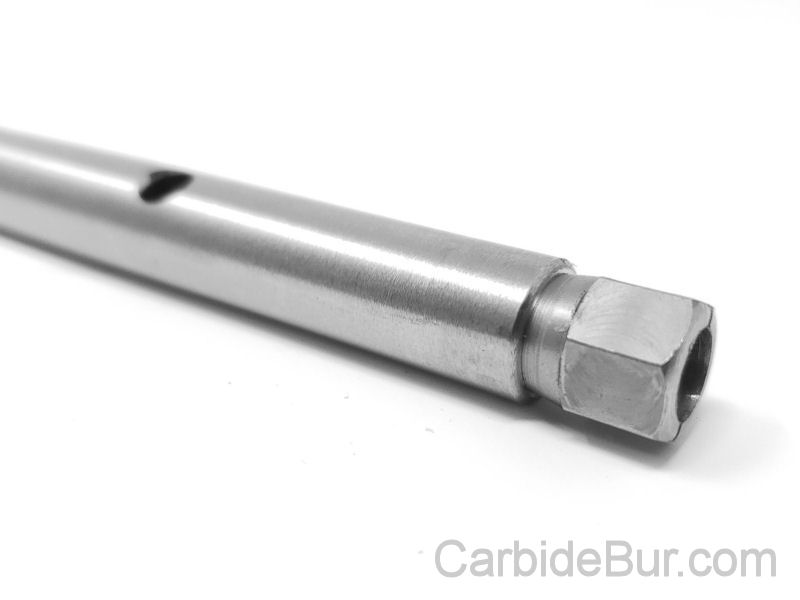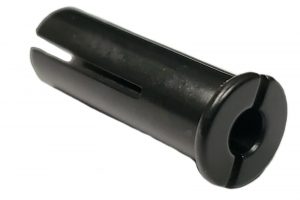Paypal Credit Card Payments Accepted
Paypal credit card payments, along with Visa, Mastercard, American Express and Discover all accepted for our carbide bur die grinder tool bits. Here is some information about Paypal you might find interesting below.
PayPal Holdings, Inc. is an American company operating a worldwide online payments system that supports online money transfers and serves as an electronic alternative to traditional paper methods like checks and money orders. The company operates as a payment processor for online vendors, auction sites, and many other commercial users, for which it charges a fee in exchange for benefits such as one-click transactions and password memory.
Established in 1998 as Confinity, PayPal had its initial public offering in 2002, and became a wholly owned subsidiary of eBay later that year. eBay spun off PayPal in 2015. The company ranked 204th on the 2019 Fortune 500 of the largest United States corporations by revenue.
Early PayPal history
PayPal was originally established by Max Levchin, Peter Thiel, and Luke Nosek in December 1998 as Confinity, a company that developed security software for handheld devices.
In March 2000, Confinity merged with X.com, an online banking company founded by Elon Musk. Musk was optimistic about the future success of the money transfer business Confinity was developing.[citation needed] Musk and Bill Harris, then-president and CEO of X.com, disagreed about the potential future success of the money transfer business and Harris left the company in May 2000. In October of that year, Musk decided that X.com would terminate its other internet banking operations and focus on PayPal. That same month, Elon Musk was replaced by Peter Thiel as CEO of X.com, which was renamed PayPal in 2001 and went public in 2002. Paypal’s IPO listed under the ticker PYPL at $13 per share and generated over $61 million.
eBay subsidiary (2002–2014)
Shortly after PayPal’s IPO, the company was acquired by eBay on October 3, 2002, for $1.5 billion. More than 70 percent of all eBay auctions accepted PayPal payments, and roughly 1 in 4 closed auction listings were transacted via PayPal. PayPal became the default payment method used by the majority of eBay users, and the service competed with eBay’s subsidiary Billpoint, as well as Citibank’s c2it, Yahoo!’s PayDirect, and Google Checkout.
In 2005, PayPal acquired the VeriSign payment solution to provide added security support. In 2007, PayPal announced a partnership with MasterCard, which led to the development and launch of the PayPal Secure Card service, a software that allows customers to make payments on websites that do not accept PayPal directly. By the end of 2007, the company generated $1.8 billion in revenue.
In January 2008, PayPal acquired Fraud Sciences, a privately held Israeli start-up that developed online risk tools, for $169 million. In November 2008, the company acquired Bill Me Later, an online transactional credit company.
By 2010, PayPal had over 100 million active user accounts in 190 markets through 25 different currencies. In July 2011, fourteen alleged members of the Anonymous hacktivist group were charged with attempting to disrupt PayPal’s operations. The denial of service attacks occurred in December 2010, after PayPal stopped processing donations to WikiLeaks. On December 5, 2013, 13 of the PayPal 14 pleaded guilty to misdemeanor and felony charges related to the attacks.
The company continued to build its Merchant Services division, providing e-payments for retailers on eBay. In 2011, PayPal announced that it would begin moving its business offline so that customers can make payments via PayPal in stores. In August 2012, the company announced its partnership with Discover Card to allow PayPal payments to be made at any of the 7 million stores in Discover Card’s network. By the end of 2012, PayPal’s total payment volume processed was US$145,000,000,000. and accounted for 40% of eBay’s revenue, amounting to US$1,370,000,000 in the 3rd quarter of 2012.
In 2013, PayPal acquired IronPearl, a Palo Alto startup offering engagement software, and Braintree, a Chicago-based payment gateway, to further product development and mobile services. In June 2014 David Marcus announced he was leaving his role as PayPal President; Marcus joined PayPal in August 2011 after its acquisition of Zong, of which he was the founder and CEO. David Marcus succeeded Scott Thompson as president, who left the role to join Yahoo. PayPal announced that Marcus would be succeeded by Dan Schulman, who previously served as CEO of Virgin Mobile and Executive vice president of American Express.
Uses for Carbide Bur Cutting Tools:
Aluminum
Brass
Bronze
Carbon fiber
Cast iron
Ceramics
Copper
Fiberglass
Gold
Hard rubber
Plastic
Platinum
Silver
Steel
Stone
Titanium
Wood
Zinc
Burs (burrs) come in a variety of shapes and sizes, each of which can be used for different purposes:
Arch ball/pointed nose – engraving, texturing, increasing hole size
Ball – concave cuts, hollowing, shaping, carving. Useful for wood, stone, metal engraving.
Ball nose cone – rounding edges, surface finishing, tight spaces, and angles.
Carbide Ball nose cylinder- contour finishing
Ball nose tree (also known as tapered) – concave cuts and rounding edges
Cone – rounding edges, surface finishing, tight spaces, hard to reach areas.
Cylindrical – contour finishing and right-angled corners
Cylindrical end cut – contour finishing
Carbide Cylindrical no end cut – contour finishing
Flame – channel work and shaping
Inverted cone – v-cuts and rear-side chamfering
Oval – die grinding and engraving
Pointed tree – concave cuts, rounding edges, access to hard-to-reach areas, and acute angles.
Rounded tree – concave cuts and rounding edges
Need a longer reach?
Try our 4″ and 9″ extension tool for your carbide bur bits
Burs (burrs) also come in a variety of ranges, each of which has a specific benefit in their use:
Alloy-specific – heads have varying shapes used with certain metal alloys – used in the
aerospace/aviation industry
Base metal range – used for deburring on softer metals
Bolt remover range – used for the removal of broken studs
Foundry metal range – used for deburring on harder metals, stone, etc.
Inox range – specifically used with stainless steel
Locksmith range – used by locksmiths
Long shank range – general-purpose; long shafts useful for deeper, hard-to-reach areas
Miniature range – miniature heads useful for engraving and fine detail work
New geometry range – used for all general metal removal
Steel range – heads have specialized fluting to cut stainless steel
Universal range – general-purpose, best on metals such as copper, iron, nickel, and steel
Carbide burs (burrs) require a bit of special care to keep them performing optimally. To preserve the life
of your carbide burs (burrs), ensure your handpiece does not wobble. The speed of your rotary tool
should not exceed 35,000 RPMs, and speed should be gradually increased. Please note, however,
that higher speeds will prevent flute clogging inside the bur (burr). If you apply too much pressure to the
bur (burr), the edges may chip, resulting in premature dulling.
Choose Double or Single Cut Carbide Bur?
Used on ferrous and non ferrous metals, aluminium, soft steel and also for all non-metal materials such as stone, plastics, hard wood and ceramic. Double cut have more cutting edges and will remove material much faster. Double cut will leave a smoother finish than single cut due to producing smaller chips as they cut away the material. Use for medium-light stock removal, deburring, finishing and cleaning.
Designed for medium- light removal of material, deburring, fine finishing, cleaning, smooth finish, and creating small chips.
Usually used with stainless steel, hardened steel, copper, cast iron, and ferrous metals and will remove material quickly with a smooth finish. Use for heavy stock removal, milling, deburring and cleaning.
Designed for heavy removal of material, milling, deburring, cleaning, and creating long chips.
Try our 1/4” to 1/8” Collet Reducer
Allows you to use 1/8” shank carbide bits in your 1/4” die grinder
Uses for Carbide Bur Die Grinder Bits
Carbide burs are widely used in metalworking, tool making, engineering, model engineering, wood carving, jewelry making, welding, chamferring, casting, deburring, grinding, cylinder head porting and sculpting. Carbide burs can be used in the aerospace, automotive, dentistry, stone and metalsmith industries.
All our USA made carbide bur cutting tools ship SAME DAY ordered by USPS Mail with online tracking.
We can also dropship the carbide bur die grinder bits, if interested in joining our FREE dropship program.
We accept debit and all major credit card payments including Visa, MasterCard, Discover, American Express and PayPal. Fast and easy secure checkout with no account or login required. If you have any questions, visit our FAQ page or contact us here.

Follow us on Facebook, Twitter and Instagram
Return to CarbideBur.com
Carbide Burs – 1/4″ on 1/8″ Shanks – Accessories – Aluminum Cut – Bur Sets – End Mills – Long Shank – Solid Burs





